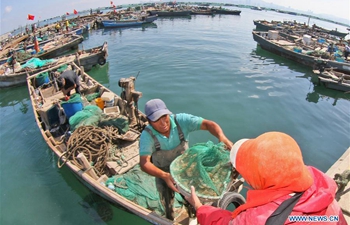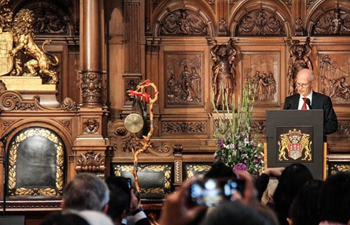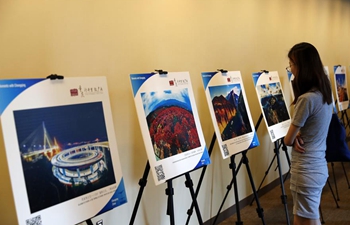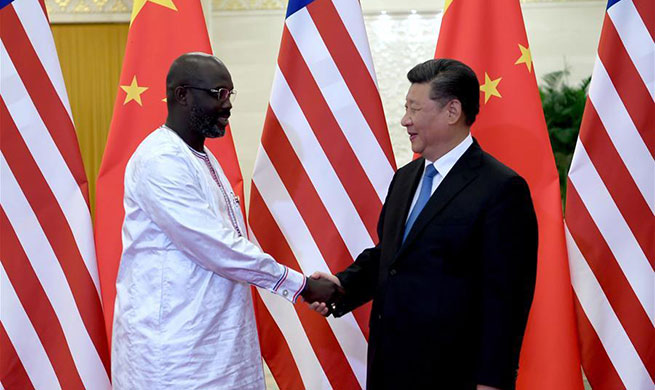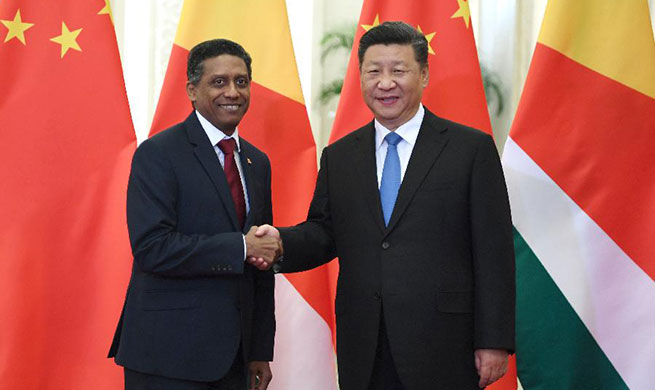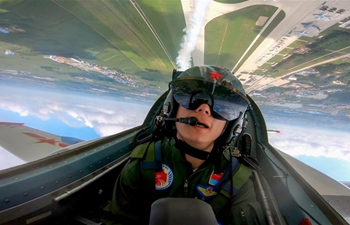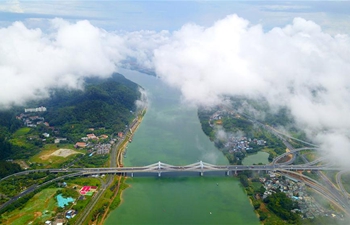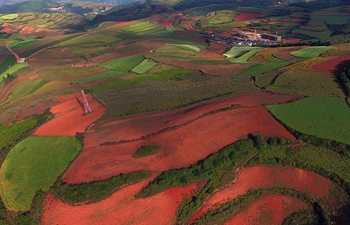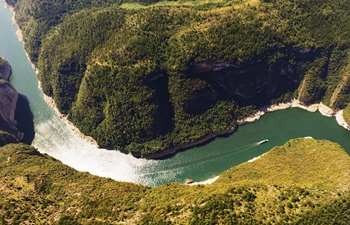TAIPEI, Sept. 2 (Xinhua) -- In front of dozens of curious tourists in the Alishan House in the scenic area in Taiwan, He Ping vividly talks about the planets with Powerpoint slides and a paper planisphere.
"If you hold the planisphere with your purlicue, you will find your thumb right on the Lyra constellation, whose brightest star is Vega," he says.
He is an astronomy teacher at the hotel in Alishan, a mountain resort and nature reserve in Chiayi County, southwest of Taiwan. He has been recruited by the hotel to draw more tourists there as the island struggles to retain visitors from the mainland amid a tourism lull in Taiwan.
The current lull followed the election of Taiwan's new leader Tsai Ing-wen, who assumed office in 2016. Tsai has refused to adhere to the 1992 Consensus, which embodies the one-China principle, angering people on both sides of the Strait.
According to local authorities, the number of tourists from the mainland to Taiwan was more than 4.18 million in 2015. But after Tsai was elected, the number dropped significantly to less than 2.73 million last year, down more than 30 percent.
Alishan suffered one of the biggest losses. According to the latest figures, the nature reserve saw 698,000 visitors from January to May this year, compared to less than 1.2 million tourists from the same period in 2016.
Under such circumstances, it is no wonder that those in the business are trying unique ways to attract more visitors, including using astronomy.
He, 60, teaches astronomical knowledge to those staying at the hotel in Alishan, and takes them outside at night to see the stars and the moon after class in Alishan, a place he says is perfect for star gazing.
"The class has been effective as far as I can see," he says. "The lodgers are quite interested in astronomy, and our class size has been gradually increasing."
He's teaching career started more than a decade ago, when he taught astronomical lessons at the Taipei Astronomical Museum.
"At the time, my classes were well received," he says. The students and their parents then spread the word about the quality of his class, and some local hotels began to take notice.
"A local hotel in Hualien caught wind of my class and thought about recruiting me at their hotel to help boost reservations four years ago," he says.
In the beginning, the hotel had an occupancy rate of less than 30 percent. After He was recruited, the number jumped to more than 90 percent.
"The hotel staff felt it was quite effective, and my business soared," he says. Currently, several hotels have hired He and his peers to teach astronomy.
In the iconic scenic spot of Alishan, He's lessons also upped the number of guests at Alishan House, he says. He also introduced his peers to the hotel to teach classes. In recent years, the number of guests attending the astronomical classes has been on the rise.
"At first, we only taught during the summer holidays, but as more people came, we extended the classes throughout the year," he says.
For the first few classes, there were only a few people, but He did not take them for granted and worked very hard to prepare for the classes.
"I wanted my class to be fun and interesting, so I would watch TV and listen to the radio, and incorporate the latest events into astronomy," he says. "I don't want my class to be dull."
In class, He usually introduces the basic astronomical knowledge to the students -- usually parents with their children. Then he hands out a paper planisphere to each person and explains the constellations on it. After the one-hour class, he takes the students to the top floor of the hotel or outside to observe the stars.
"I use a laser pointer to show them the constellations, and ask them some questions to get them involved," he says.
He says he has noticed a decrease of tourists from the mainland in recent years and hopes such classes can help attract more people to Taiwan.
While teaching astronomy on the island, He is also promoting such classes on the mainland. He is currently in negotiations with a hotel in Zhengzhou, capital of Henan Province, to open an "astro-classroom" there.
"We are thinking about building a giant screen in the hotel classroom," he says. "The screen can display a simulated night sky."
He says that while in class, students can watch the sky display to learn about the stars. After class, the screen can be opened to show the real night sky, so that students will be able to put to use what they learn in class.
"I hope I can contribute to the astronomy education on the mainland and help cultivate talent," he says.




